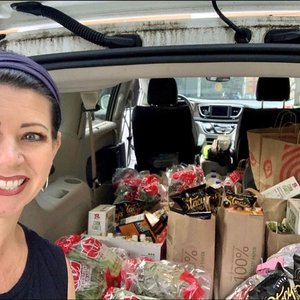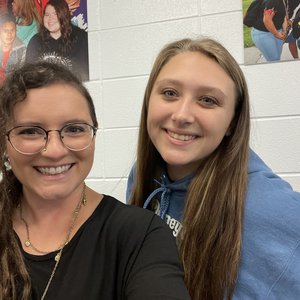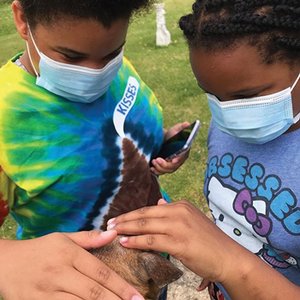
Let’s Prioritize Social-Emotional Learning
Experiences of social isolation during the COVID-19 pandemic have created unprecedented challenges for students and families, highlighting the need for social-emotional learning more than ever.
Social-emotional learning (SEL) is the process through which young people and adults acquire a wide array of non-academic skills that allow them to set goals, manage behavior, build relationships, and process and remember information.
During the COVID-19 pandemic, students are experiencing difficulties, including not fully engaging in virtual learning, not participating in academic activities, and encountering challenges in building relationships without face-to-face interactions. With social isolation and inequitable access to online learning, students in under-resourced communities find it even more difficult to connect to SEL opportunities, when they likely need it the most.
Research suggests that participation in SEL programs can improve students’ academic achievement, reduce delinquency and other challenging behaviors, and increase the likelihood of graduation, postsecondary enrollment, and postsecondary completion. The positive effects extend beyond the classroom with studies showing long-lasting impacts on reducing rates of depression and anxiety and lowering rates of risky behaviors, such as drug use and teen pregnancy. In addition, SEL can help address various forms of inequity and empower young people and adults to contribute to safe, healthy, and just communities.
CIS’ Integrated Student Supports model encourages SEL by including individualized support and a trusting relationship between a student and a coordinator. In addition, CIS gives students spaces and resources that empower them to overcome the challenges they face and succeed in school and beyond.
Communities In Schools of Houston is encouraging social-emotional learning for both high school and elementary school girls. They hold girls support groups at a high school and elementary school campus where students can express their feelings and discuss topics related to their social-emotional health.
One such group, Charm Girls, supports elementary aged girls. The group completes art activities, music activities, skits, and group discussions that allow them to focus on social skills, character building, self-esteem, and mental health. They also take field trips, which allow the girls to practice the skills they learn outside of school walls.
Charm Girls creates a safe, supportive space for many girls.
One girl says, “I love Charm Girls because I met a lot of new friends and it makes me happy,” and another says, “I like Charm Girls because I get to express myself and say how I feel without being judged.”
Also, the girls create vision boards at the beginning of the year to discuss how they want the rest of their year to look. They do constant check-ins to make sure that behavior and actions are lining up with set goals. For young students, learning how to set and work toward goals is a key part of SEL.
At a similar high school group, ninth and eleventh grade girls pair up and serve as mentors and mentees to each other. The girls in the group decide together what topics they want to discuss in the sessions, including mental health, self-esteem, managing emotions, feelings, parents, sexism/racism/ageism, violence, college and careers, relationships, and stress.
For many students, talking to their peers helps them process their feelings. One ninth grader enjoys having time to talk to an older classmate: "I feel like she gets it and it’s cool we also get to talk about what we want. We're told what to do all day and it’s nice to have a break."
Such discussions encourage a healthy outlook on goal setting, relationship building, and decision making, that the girls can carry with them for the rest of their lives. And, according to their CIS Site Coordinator, “By preparing the ladies with evidence-based skills, information, and realness my hope is they'll have a positive experience regarding mental health. The more educated our community is the easier it is to direct others to services.”
By prioritizing SEL, we can build a future of critical, empathetic thinkers that understand how to thoughtfully engage in civic life and in their communities.
Learn more about the impact of SEL in our 2021 SEL Policy Brief.



